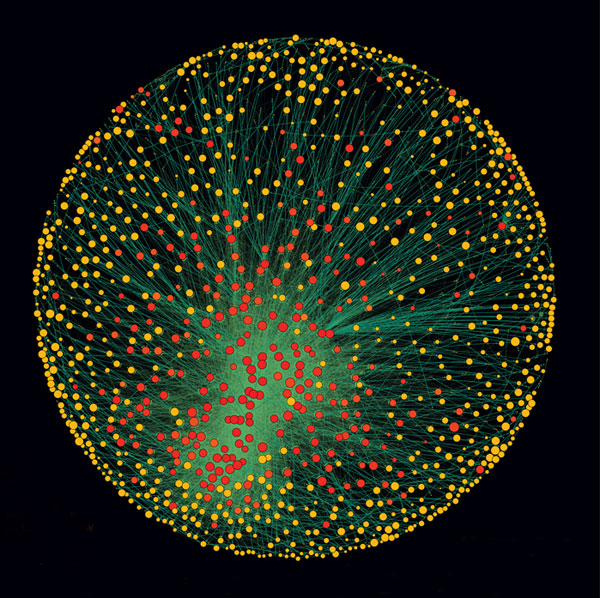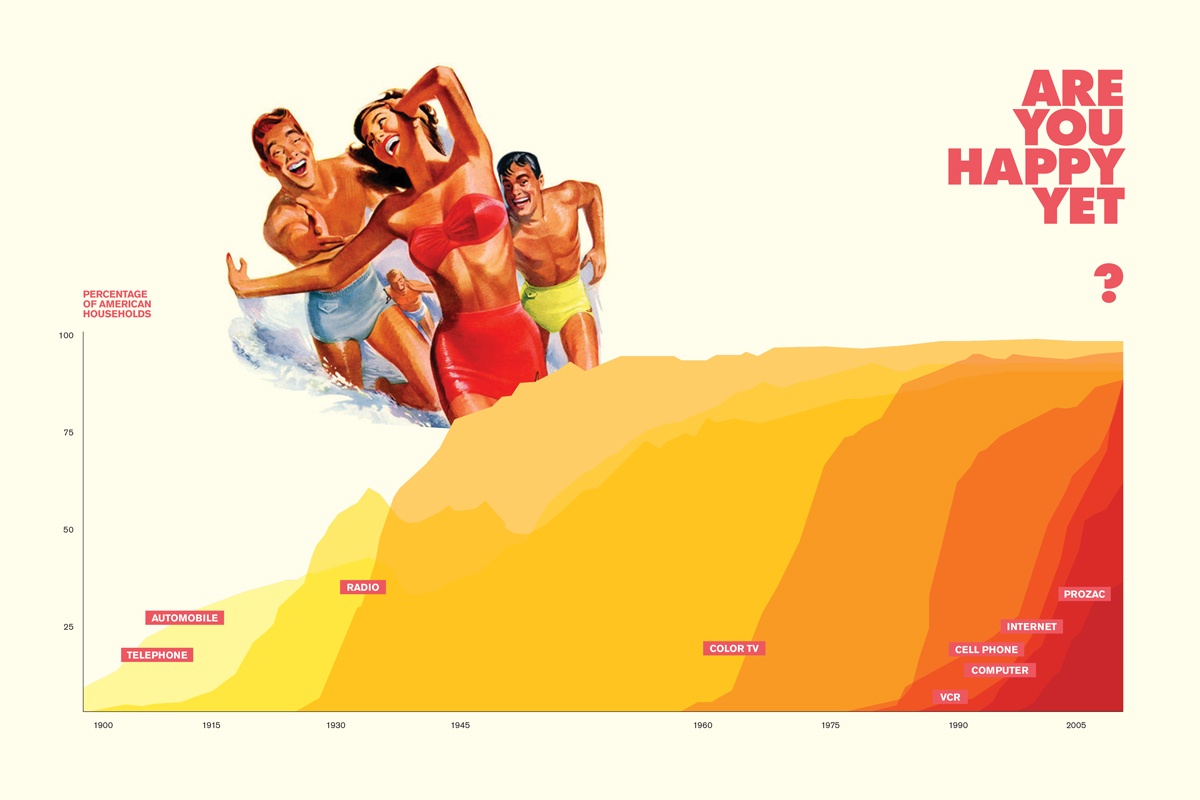I recently saw a simple and profound bumper sticker with just one word describing the driver’s orientation to life: FACTIVIST. I thought, now there’s a person I’d like to meet—an activist with command of the facts.
In the last couple of weeks, I also read Stephen Pinker’s wonderful new book, Enlightenment Now and Jeremy Lent’s inspiring new book, The Patterning Instinct. Both of these books arm us with the facts we need to become more effective activists.

In Enlightenment Now, Pinker examines the ways in which the Enlightenment ideals of science, progress, humanism and reason have given us cause for optimism. Pinker challenges us in this book to be neither too pessimistic nor pollyannaish. He assembles an arsenal of numbers to attack a host of enemies: religion, conservatism, nationalism, tribalism, and populism. Pinker credits the Enlightenment not only with crushing superstition, but also improving life expectancy, the world economy, and income levels while reducing infant and maternal mortality, death from famine, and extreme poverty. He concludes that we should be much happier and optimistic given the progress we have made and the fact that life now has more exciting possibilities.
Having cited all the numbers and graphs indicating incredible progress over the past 200 years, he implores us to view the threats of overpopulation, resource depletion, nuclear war and climate change as problems to be solved.
He does not discount their severity, he simply suggests that we tackle them with resolve and hope instead of doom and gloom. Above all, Pinker’s book is a fact-based treatise that any enlightened activist should read.

In The Patterning Instinct, Jeremy Lent provides perspective on our modern challenges of radical innovation and global polarization. His book is a deep dive into the history of human cultures that led to the dystopia that currently threatens the planet. While Lent does not share the same level of optimism that Pinker exudes, he still suggests potential solutions to our collective problems and powerful new ways to view ourselves. Like Enlightenment Now, this book is full of hope and possibility.
Lent suggests ways of connecting meaning-seeking people in our complex world to create a more harmonic web of life.
His main message is that we are interconnected and interdependent. Lent reaches his conclusions after a thorough tour of human history and philosophical literature starting with Confucius and Lao Tzu and proceeding through the Greeks and modern day space exploration.
Lent suggests that, while the Earth is facing potentially catastrophic disruptions, our societies are rapidly losing cohesion.

Democracies have become thinly veiled corporate oligarchies. And there is a loss of meaning in the Western worldview.
In the face of these challenges, Lent provides a simple observation: cultural worldviews shape societal values, and those values shape history. In this meticulously referenced book, Lent takes a complex systems approach and focuses on the interaction among those systems. Most importantly, Lent proposes value-based solutions to the problems we are facing.
Both of these books are stunning achievements that emphasize the importance of facts and values. For me, they raise two compelling questions: 1) What values drive our behaviors? And 2) What facts support our beliefs?
I’m hoping the emergent values in the world are inclusiveness, interdependence, interconnectedness, integration, integrity, innovation, and involvement—seven I’s for an optimistic future.
I believe our culture is starting to shape those values out of necessity. And the inspiring messages from survivors of the Parkland, Florida killings, for example, strengthen that belief. I think our cultural consciousness is evolving in that direction.

I’m also hoping that we are becoming more rigorous in our pursuit of facts. People like Pinker and Lent have done the work to make facts available. It’s just a question of whether or not we will do the work to benefit from their research and others.
Being an effective activist requires a well-defined set of values and a well-fortified set of facts. This means being crystal clear about what gives us meaning (what’s most important to us) and doing the rigorous research required to be able to make evidence-based assertions.
The challenge with facts is that they don’t always stand on their own.
Facts get analyzed and interpreted through a lens of values and beliefs which is the real source of disconnect between conservatives and liberals.
The weakness of factivism is the cherry picking of facts that strengthen a person’s position or beliefs. If cherry picking is perceived as manipulative, it ends up creating resistance and contributing to polarization.
If we on the left are going to be effective activists for enlightenment values, then we will need clear values and robust facts in pursuit of a positive agenda.
And we will need to remember that our differences with the right are due more to identities than intelligence.
All conservatives are not stupid and all liberals are not smart. The bigger question we all need to ask ourselves is, “How much of my beliefs are influenced by my tribal identity and values?” My hope is that we can advance our agendas through values and facts, but it will be a challenge not only to part the Red Sea in the middle of the country from their opinions and beliefs, but also to stay open to new information in spite of our own biases.
You will have to define your own set of values and decide what gives you the most meaning in life, but I can provide you with a starting set of facts that may influence the direction and degree of your activism. Here are 10 facts that come from Enlightenment Now:
- Since the Enlightenment, life expectancy across the world has risen from 30 to 71 and, in the more fortunate countries, to 81.
- When the Enlightenment began, one third of children born in the richest parts of the world died before their fifth birthday; today, less than 6 percent of children in the poorest parts of the world die before they turn 5.
- Lethal, infectious diseases are in steady decline across the world.
- The world is about 100 times wealthier than it was 200 years ago.
- The proportion of humanity living in extreme poverty (less than $2.00 per day) has fallen from almost 90% to less than 10% and is still declining.
- The proportion of people killed in wars annually is an eighteenth of what it was in the 1950s and a ½ percent of what it was in World War II.
- Americans are half as likely to be murdered than they were two dozen years ago.
- Over the course of the 20th century, Americans became 96% less likely to be killed in a car accident.
- At the turn of the 20th century, women could vote in just one country (New Zealand); today they can vote in every country where men can vote except one (Vatican City).
- Early in the 19th century, 12% of the world could read and write. Today 83% can.

On the other hand:
- 700 million people in the world still live in extreme poverty.
- At least a dozen wars are raging in the world.
- In 2015, 10,000 people were slaughtered in genocides.
- Almost a fifth of the world’s people lack a basic education.
- Every year, 5 million people are killed in accidents and more than 400,000 are murdered.
- Almost 300 million people in the world are clinically depressed, of whom almost 800,000 will die by suicide this year.
- The lower middle classes in rich countries have seen their incomes rise by less than 10% in two decades (the Trump base).
- 100 million hectares of tropical forests were cut down in the previous year and marine fishes have declined by almost 40 percent.
- We spew 38 billion tons of carbon dioxide into the atmosphere every year which threatens to raise global temperatures by two to four degrees Celsius.
- The world has more than 10,000 nuclear weapons distributed among nine countries.
The first set of facts give us reason for hope. The second set of facts give us reason for alarm.
What’s most frightening to me are the last two facts concerning climate change and nuclear arms.
We need the first 10 to help us believe that change is possible. Without that belief, nothing happens.
When I talk to my grandkids about things they have heard from multiple sources, I often ask them: “Is that an opinion or a fact?” They are starting to learn the difference. My hope is that, as they grow older, they will define what gives them meaning and diligently seek out the facts that strengthen their positions. I trust they will become powerful Factivists.
Also published on Medium.




Oh my: I am so impressed by your ability to read, digest and interpret for us lesser mortals, and appreciative of your doing so! I’m anxious to read Pinker, but I hope i’m still alive by the time I finish GRANT! I’d like to put myself in the optimistic camp, but I doubt I’ll get there till the orange buffoon disappears. Once again, thank you for being you Ricky. RonnyDonny
Thanks Ron. I’m so appreciative of your friendship and support.